
Dartmouth University
Posted in Ivy LeagueDartmouth is a research university in New Hampshire. Located in the small town of Hanover, it is part of the Ivy League, and was the last college to be founded by the Colonials prior to the American Revolution. It is the smallest university in the Ivy League, with a total student enrollment of just 6144 (2/3 of which are undergraduates). The campus, which was originally a farm, is 269 acres large.
History
Eleazar Wheelock, who was a Puritan Minister from Connecticut, wanted to establish a school to train Native Americans into missionaries. In 1755 he founded Moor’s Indian Charity School. This school was successful, but Wheelock eventually had difficulty recruiting Natives to the institution because of its location. He relocated the school to Hanover, and expanded it into a college. John Wentworth, who was the Royal Governor of New Hampshire, established the college officially on December 13th, 1769, issuing a charter in the name of King George III. Dartmouth University began operating in Hanover in 1817, using the former College’s buildings as its own. At the turn of the 20th century, Dartmouth emerged onto the national academic stage. During World War II, Dartmouth (like many schools) offered students a path to the Navy through the V-12 Navy College Training Program. Campus facilities and the curriculum have continued to be improved and modernized since the end of the war.

Programs
The Geisel School of Medicine is one of the United State’s best medical schools, and is the 4th oldest medical school in the country. The school cultivates leaders and innovators of virtuosity and vision and helps students transform patient and medicine care by expanding their overall knowledge. Clinical departments include Anaesthesiology, Neurology, Paediatrics, Radiology, and Surgery. The Geisel School of Medicine also offers joint programs that combine an M.D. with a Ph.D. or M.B.A. Dartmouth College also has an excellent Department of Chemistry. The Department offers a range of core courses, which are taken by many Dartmouth undergraduates, as well as research seminars and specialized advanced classes, reserved for those wishing to concentrate in Chemistry. The department has terrific faculty who specialize in many areas, including: biophysics of cell membranes, synthetic methodology, protein crystallography, and molecular spectroscopy and dynamics. The Department of Economics at Dartmouth is considered to be one of the best in the country. Dartmouth’s economic curriculum introduces students to a unique way of looking at problems and asking questions that will provide value throughout a student’s career and life. The curriculum is designed to assist students with analyzing current and important social problems, and has continued to change as the field of economics has changed. The quantitative skills which students acquire will be useful in many contexts. The department offers the standard major, as well as an economics minor and modified major which are intended to fit the needs of students who are interested in economics but are currently in another academic discipline.
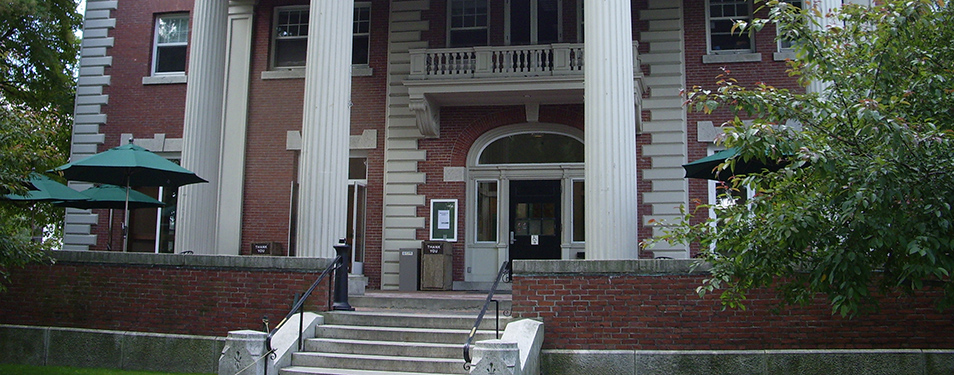
Pros & Cons
Dartmouth offers a wide range of student activities. More than 90% of students live in on-campus housing, which provides tremendous opportunities for you to meet other people and make new friends. On-campus housing includes fraternity and sorority houses, residence halls, undergraduate societies, and college-approved co-eds. While Hanover is a small town, and does not have the same excitement as Boston or New York (where other Ivy League schools are located), it was rated as the 6th best place to live in America in 2011 by CNN and Money magazine. The student-faculty ratio of 8:1 is excellent, and almost 2/3 of classes have fewer than 20 students. The school is very selective, however, as it only had a 10.1% acceptance rate in Fall 2011. Like all Ivy League schools, it is also expensive, costing over $45 000 in tuition and almost $13 000 in room and board. Half of the full-time undergraduates require financial aid, which can lead to significant debt in the future.

 Brown University
Brown University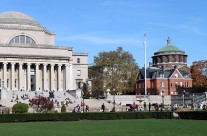 Columbia University
Columbia University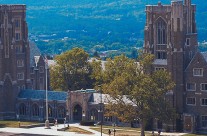 Cornell University
Cornell University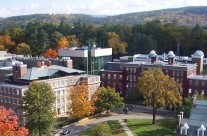 Dartmouth University
Dartmouth University Harvard University
Harvard University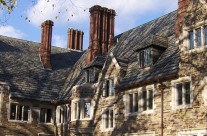 Princeton University
Princeton University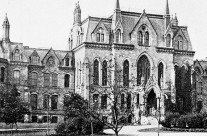 University of Pennsylvania
University of Pennsylvania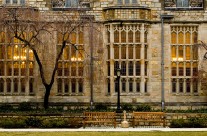 Yale University
Yale University